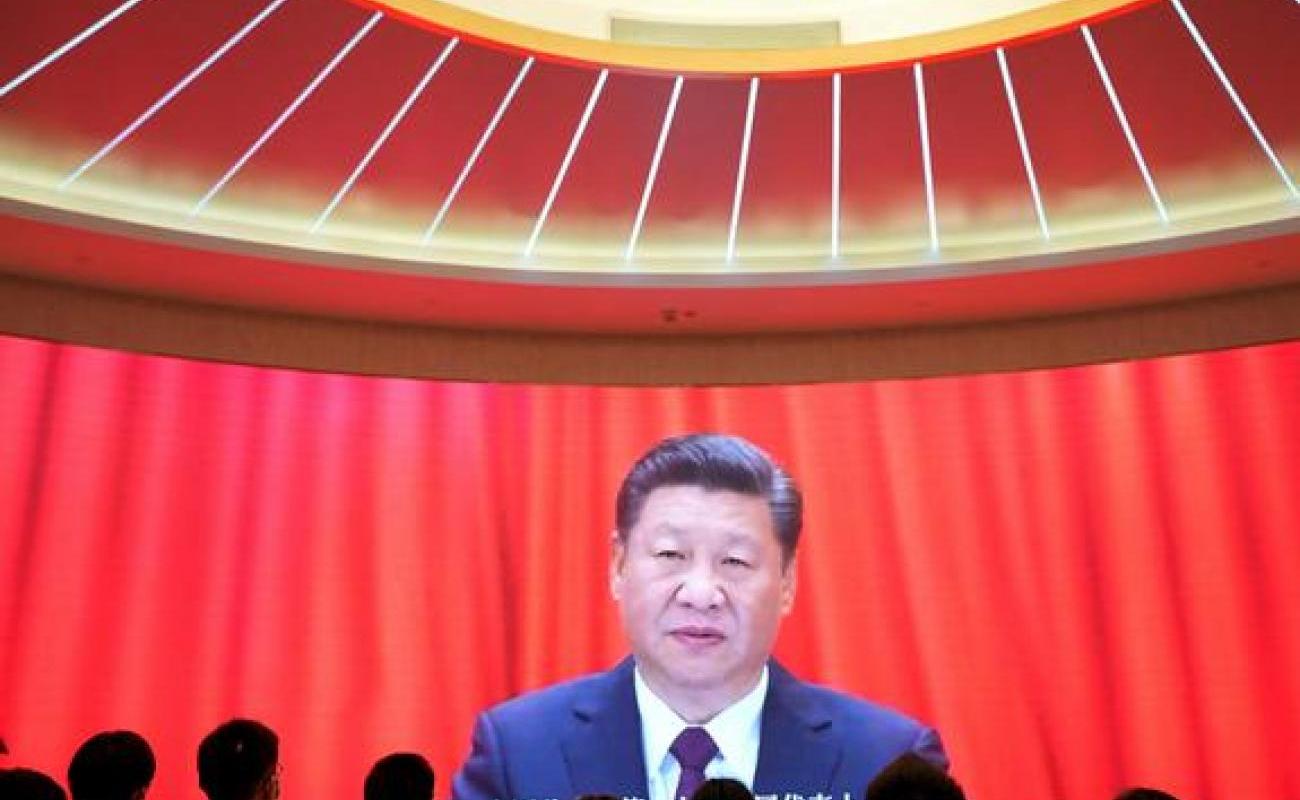China enters a new era as power centralizes around Xi

After unanimously getting himself elected for an unprecedented third term on Friday, Chinese President Xi Jinping has now installed another close confident in a key post: Li Qiang was elected by the National People's Congress on Saturday as China's new premier.
Li, best known as the enforcer of last year's coronavirus lockdown in Shanghai, is believed to have earned Xi's trust by sticking to the strict zero-COVID strategy despite monthslong protests in China's biggest city.
This was the latest personnel reshuffle endorsed by the National People's Congress, China's ceremonial parliament, this week. Zhao Leji, Wang Huning and Han Zheng, who were all members of the Politburo Standing Committee, were elected on Friday as the new parliament chair, chairman of the top political advisory body and vice president, respectively.
Xi moves further away from West
China policy analyst Alfred Wu told DW that Xi's reelection, along with the election of Xi's close allies, means the party will move even further away from the Western governance models.
"Xi will be someone who is at the top of a pyramid system, and China's governance model under him will be much more socialist," said Wu, an associate professor at the Lee Kuan Yew School of Public Policy at the National University of Singapore. "It's something against Deng Xiaoping's policy, whose policy was letting people get rich first and learn all the best practices from the West. Now, the ideology is anti-West and socialist."
Sam Crane, an expert on Chinese politics at Williams College in the United States, said Xi might want loyal allies around him to "have the flexibility and speed to respond to uncertainties."
China, the world's second largest economy, is facing a drastic economic downturn while its relationship with the United States appears to be in a nosedive.
However, the downside of "loyalty versus expertise," Crane said, is that the Chinese leadership may lose critical perspectives at the top.
Potential for 'disastrous outcomes'
Patricia Thornton, an associate professor of Chinese politics at Oxford University, also warned that loyalty at the highest levels of power could be dangerous for the Chinese Communist Party.
She pointed to the example of newly elected premier Li Qiang. He reversed his own better instincts, she said, to implement a "shambolic" COVID-19 lockdown of Shanghai "at great cost to the residents."
"This suggests that Li is unlikely to challenge Xi's authority moving forward and the danger is that without alternative views [...] a one-man decision-making process could end up producing disastrous outcomes."
Institutional overhaul also centralizes power
As for China's institutional reforms, proposals submitted to the National People's Congress show that China plans to establish a National Financial Regulatory Commission to oversee insurance and banking assets that are worth $57.7 trillion (€54.14 trillion).
Additionally, China's Science and Technology Ministry is facing restructuring to speed up the country's push to become technologically self-reliant.
China is also expected to establish a new National Data Bureau, which will concentrate data management into one supervisory organ. The bureau could potentially set and enforce rules for data collection and sharing while determining whether multinational companies can utilize data generated from their operations in China.
These reforms touch on issues that are all top priorities for the Chinese Communist Party, said Dexter Roberts, a senior fellow at the Atlantic Council's Indo-Pacific Security Initiative.
"The creation of the Financial Regulatory Commission points to the party continuing to be very worried about excessive leverage in the economy and the high level of debt throughout the economy," he said.
"The National Data Bureau reflects the party's concern about data security. There is a very strong motivation to have a much stronger body that can regulate and manage the vast amount of information in the Chinese economy," he added.
However, Roberts thinks the Communist Party is overlooking the dangers of increasing regulation of the private sector amid low economic growth.
Following three years of strict zero-COVID strategies and a real estate slump, the Chinese economy has experienced serious damages and recovery is projected to be difficult this year.
"There is a real contradiction at the heart of that and there is hubris among the top leaders, particularly Xi Jinping, that thinks he can have it both ways," he told DW. "The senior leaders haven't recognized that they can't have it both ways."
'Ugly standoff' between US and China
Internationally, tensions between China and the United States continue to rise, as a series of recent diplomatic spats derailed efforts to get bilateral relations back on track.
This week, Xi criticized the US for trying to suppress and contain China, while Foreign Minister Qin Gang warned that if the US continues down the wrong path, conflict or confrontation may be the inevitable outcome.
Roberts from the Atlantic Council said Xi believes the US and China are locked in an "inevitable conflict."
"He thinks ultimately the US or China is going to win, and that will be quite bad news for the relationship," he said. "Both sides are pushing the relationship into an increasingly ugly standoff, and I don't think Xi consolidating power is good for US-China relations."
